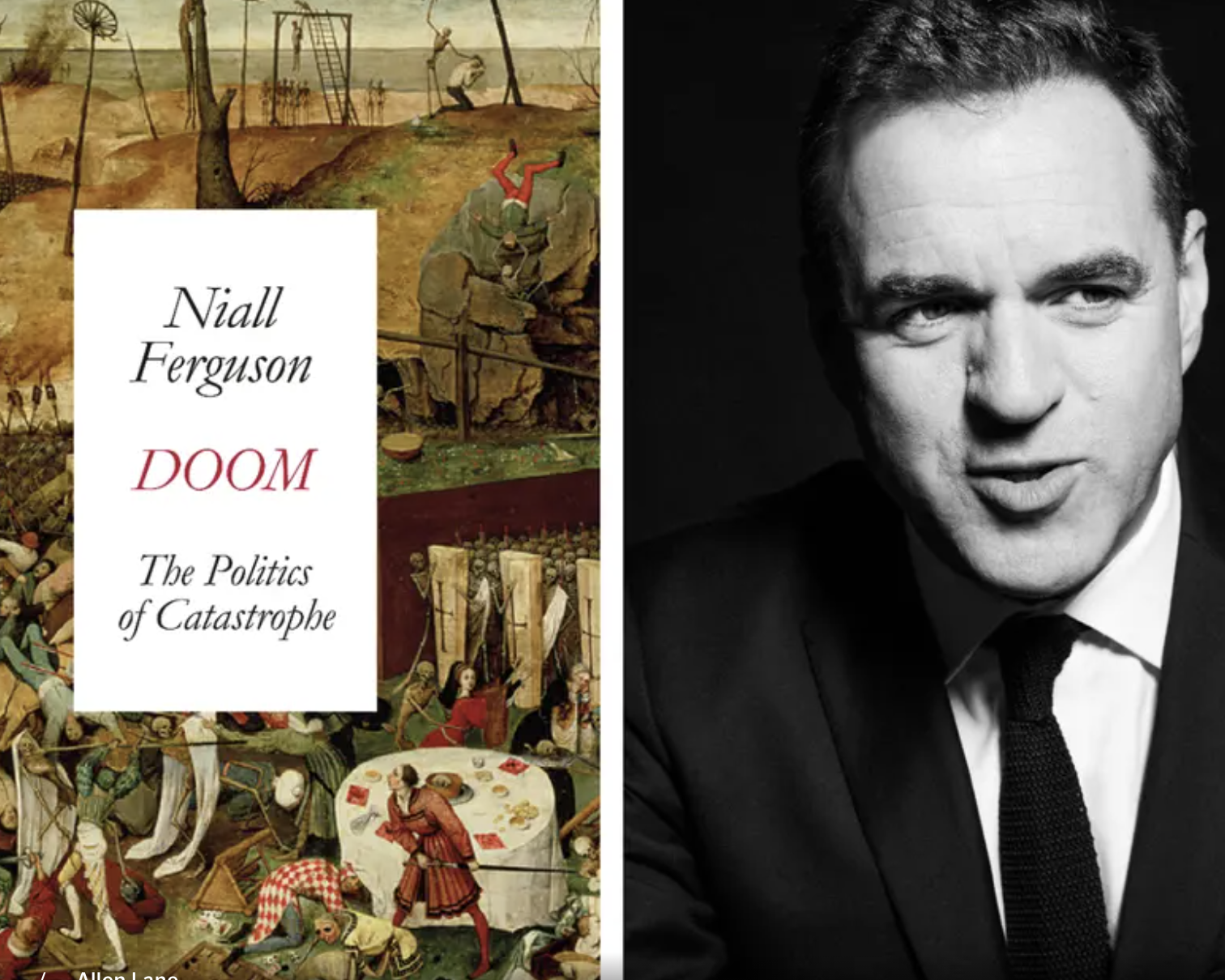
Doom: The Politics of Catastrophe by Niall Ferguson review
(Evening Standard) – From plagues and volcanic eruptions to the current Covid pandemic, mankind has always been faced with catastrophes.
Thought Leader: Niall Ferguson

It has been a tough week for the professional Donald Trump haters. Only the most unhinged of them could not share in the joy of the families of the surviving Israeli hostages as they were reunited on Monday. But there must always be liberal ghosts at any feast of which Trump is the host.
“Everyone should be glad that the hostages have been freed” and hope “that this peace process succeeds,” acknowledged the editor of The New Republic, Michael Tomasky. But? Well, “he’s still the Donald Trump who is destroying democracy and ruining lives here in America.”
“We may grimace in doing so,” wrote Kenneth Roth in The Guardian, “but Donald Trump deserves credit for finally ending the U.S. government’s funding and arming of the genocide, and arm-twisting Benjamin Netanyahu into accepting his 20-point plan for Gaza.”
This was more than Guardian columnist Owen Jones was prepared to concede. His commentary yesterday carefully avoided giving Trump any credit for the ceasefire and the return of the hostages, ranting instead that “Israel’s Western-facilitated genocide. . . . will boomerang back to the West from the killing fields of Gaza.”
At least Tomasky was prepared to entertain “the possibility that the Trump-Netanyahu worldview got it right this time.” The New Statesmen went further. Freddie Hayward’s account of the Gaza ceasefire and hostage deal explicitly acknowledged the triumph of “the dealmakers.” But it bemoaned the new world order that this triumph signifies: “a world in which Trump rules like an emperor. . . . a world where leaders court the president’s favor to receive his patronage and avoid his wrath. Institutions such as the United Nations are ignored. Diplomacy is personal. Job titles matter less than getting things done. Raw power dominates international law. And protecting capital takes precedence over protecting human rights.”
The key roles played by Steve Witkoff and Jared Kushner—respectively, Trump’s friend and son-in-law—were especially painful for Hayward to acknowledge. But he could not deny it: “Trump succeeded in ending the war in Gaza, where Biden and his expert class failed.”
It is excruciating for anyone on the left to admit any of this. For all these authors are in the grip of a pathetic nostalgia for a vanished age in which the United Nations mattered; job titles mattered; international law mattered; and human rights transcended mere economics. They appear not to have processed that “Biden and his expert class failed” precisely because all those things ceased to work many years ago.
One analogy doing the rounds is that Jared Kushner is the new Henry Kissinger. If that analogy held, then it might be some consolation to those yearning for the good old days of the liberal international order—except most of them long ago consigned Kissinger to their secular equivalent of hell. But the real point is that Kushner is radically different from Kissinger. What we have seen this year bears almost no relation to the Kissingerian approach to the Middle East.
In his 2021 book Master of the Game: Henry Kissinger and the Art of Middle East Diplomacy, the late Martin Indyk argued that Kissinger was able to shift Israel and Egypt from full-scale war in October 1973 to the beginning of a lasting peace by taking a “step by step” approach, exemplified by his indefatigable shuttling between Cairo, Jerusalem, Damascus, and other regional capitals. (From the outbreak of the Yom Kippur War until Richard Nixon’s resignation ten months later, Kissinger made six trips to the Middle East, visited 28 countries, and traveled 196,000 miles.)
“The gradual, step-by-step peace process that [Kissinger] developed,” Indyk argued, “became his primary mechanism for creating a new regional order in the Middle East,” in which the United States emerged as the dominant player. Kissinger was always “mightily resistant to more ambitious efforts to resolve the Arab-Israeli conflict because he feared that pursuing peace as an idealistic end state would jeopardize the stability that his order was designed to generate.”
These have generally not been the methods of Witkoff and Kushner. Kushner has always approached the problem of the Middle East as if it were a giant business deal—or, rather, a complex of multiple deals. Back in June, I made fun of the Trump version of realpolitik. “There’s realpolitik,” I wrote. “And then there’s reality TV politik. There’s foreign policy realism, of the kind associated with Henry Kissinger. And then there’s Donald Trump’s twist: real estate-ism.” And I questioned how far “reality TV plus real estate adds up to a strategy.” “Making peace,” I argued, “is historically harder than. . . buying skyscrapers.”
I stand by my critique of Witkoff’s efforts to broker a peace in Ukraine between Vladimir Putin and Volodymyr Zelensky. But on the Middle East—well, that crunching sound you can hear is the sound of me eating my words. For, at least where Gaza is concerned, real estate-ism has delivered.
To read the rest of this essay, go to The Free Press.
WWSG exclusive thought leader Sir Niall Ferguson is one of the world’s foremost historians of economics, international relations, and global power. His incisive analysis illuminates the geopolitical forces and economic undercurrents shaping the 21st century. From great power competition to emerging security challenges, Ferguson offers unparalleled historical context and strategic insight — helping global leaders, policymakers, and business executives anticipate what lies ahead. To invite Sir Niall Ferguson to your next event, contact WWSG.
Doom: The Politics of Catastrophe by Niall Ferguson review
(Evening Standard) – From plagues and volcanic eruptions to the current Covid pandemic, mankind has always been faced with catastrophes.
Thought Leader: Niall Ferguson
Time to end secret data laboratories—starting with the CDC
The American people are waking up to the fact that too many public health leaders have not always been straight with them. Despite housing treasure…
Thought Leader: Marty Makary
Molly Fletcher: Can drive offset your burnout at work?
This piece is by Molly Fletcher. People assume that drive depletes energy. They believe that level of intensity, focus and daily effort leads to burnout.…
Thought Leader: Molly Fletcher

